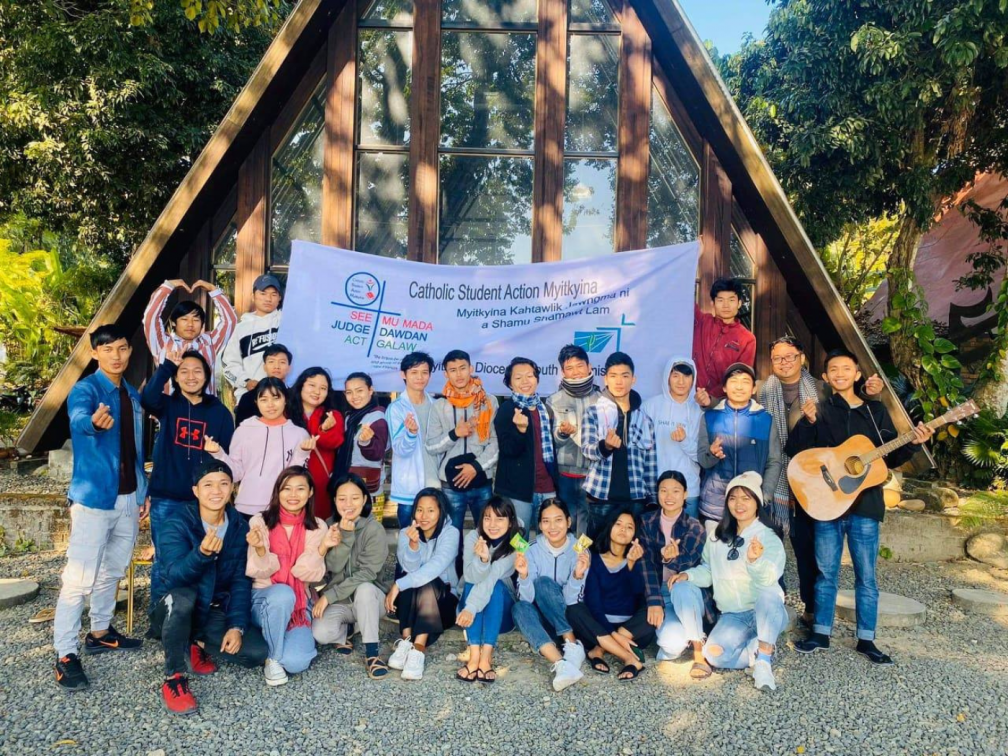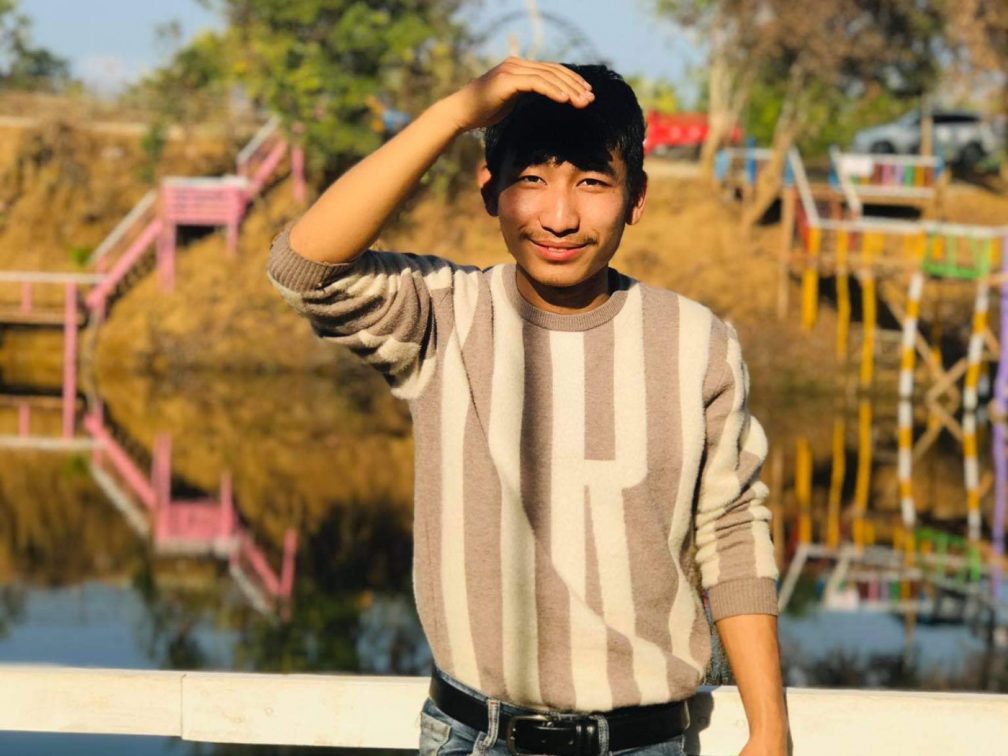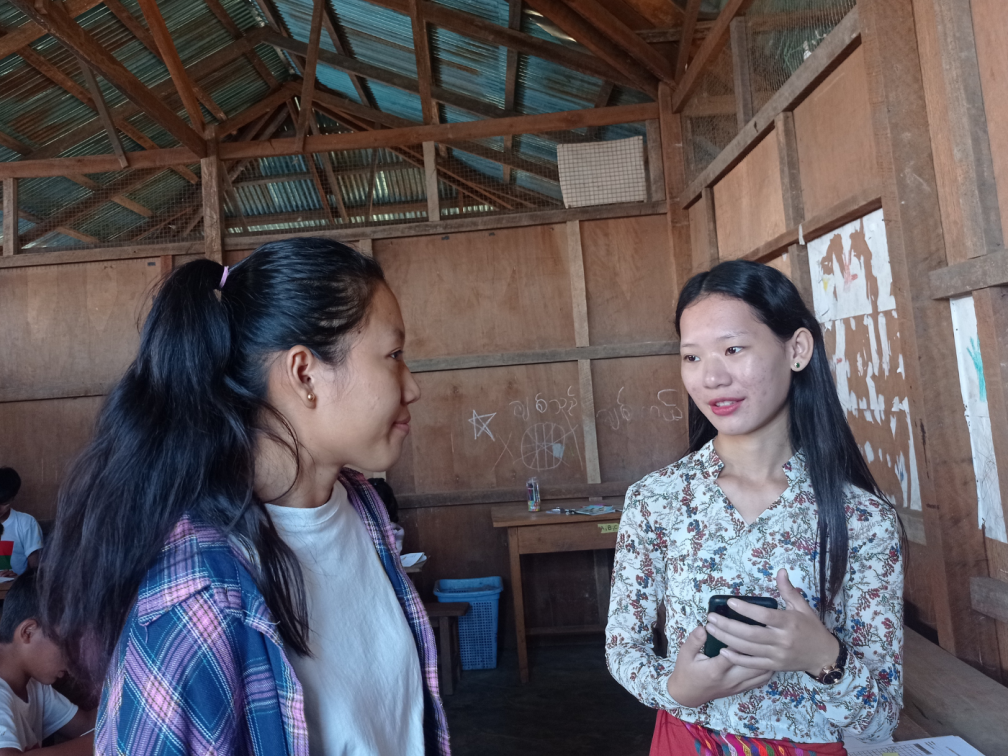The Kachins love to fish. During the rainy season, when the river and stream waters are high and when empty dry ponds are filled with water, the fish seem to grow in number. You will find many Kachins, young and old, gathered at spots even along the roads with their fishing rods, patiently waiting to catch fi sh. But fishing is no longer an enjoyable activity. Many of the streams and rivers are now polluted by human activities like mining and banana plantations. Environmental degradation is worsening with the current political crisis in the country.
“All the Fish Died,” was the headline of one magazine in Myanmar. The fish were dying in two streams where chemical runoffs from a Chinese banana plantation mixed with the water. From these streams the villagers also get their water for drinking and washing. These days it is not just fish dying but also young people and their dreams.
“Give a man a fish, and you feed him for a day. Teach a man to fish, and you feed him for a lifetime,” goes one Kachin proverb. A popular adage that reminds us that helping another person is more than just giving the person material things and resources but giving the person the opportunity learn the skill to provide for themselves. Many of the young people these days in Myanmar are struggling with life. Some are just surviving but are not finding joy and meaning in their lives.
I have been working with university students over the past three years since I arrived in the Diocese of Myitkyina as chaplain and spiritual director to the Catholic Student Action Myitkyina (CSAM), a ministry to university students. The pandemic and the coup closed all educational institutions in the country. Many of the students I worked with could not complete their university education. One of them is Philip Hka Naw Seng. He is now the interim CSAM president. Together with the committee, we try to continue to minister to the students and youth. He was in the second year of his Bachelor of Science Major in Chemistry when he, like most young people, stopped going to the university in protest at the military coup. The new military regime is very brutal in suppressing protests and resistance especially by young people. The pandemic and the coup revealed many weaknesses in the country’s education system. Many young people are now not work ready which means many – even those with university degrees – are not readily employed by companies because they lack basic, necessary knowledge, skills and attitudes. Furthermore, the Covid-19 pandemic and the ongoing political crisis in the country has led to an increase in stress and trauma among children and the youth. Mental health problems have increased among children and young people. Anxiety and depression is causing a loss of interest in life, an increase in substance abuse (drugs, alcohol, other substances) among young people.
“Why is education important for you?” I asked Philip. He explained that education means a good future for him. In his family he is the only one to have attained third level education. Though he cannot go to the university, he is finding alternative ways to continue his education. He wants to become a good teacher so he can also teach his people and improve their lives. He also explained how most Kachin people rely on the region’s abundant natural resources. They extract jade and gold through mining without considering the impact on the environment.
Since the closing of the universities and other institutes many young people have begun working in Kachin’s many mines. Many are also losing interest in studying because of the situation in Myanmar. Philip feels lost and depressed.
Mary Ja Seng Lu, another university student and member of the Catholic Student Action Myitkyina told me how the pandemic and the political situation had created many challenges for her. Her family could not support her in her studies so she had to struggle to balance university demands and work. She was doing well until the coup happened. These days she feels lost and confused.
Philip and Mary are not alone. There are thousands like them in Myanmar who are hoping for real peace and justice. Many young people these days are lost and uprooted. Some joined the armed resistance. Pursuing studies abroad is not an option for most of those from rural areas as they have no information on possible scholarships or training programmes. These days, many young people feel their dreams and future are gone.
But it is not without hope. When Pope Francis visited Myanmar in 2017, he met young people and told them, “Be brave, be generous and above all be joyful.” Many are trying their best and if given the right opportunities to learn, gain new knowledge and skills they will be able to survive and make a difference not just in their lives but also in the lives of many other young people.
For this reason we are opening a Student Resource Centre. The centre will have a computer laboratory, a library, a counselling room, classrooms and meetings rooms. It will provide a safe space and an alternative learning centre to provide skills training in English language, Computer skills, Accounting, Life skills and also mental health services. Livelihood training will also be an essential component of the centre to encourage business entrepreneurship among young people. We do not just want to give them fish but we want to empower them by giving them the right knowledge and skills to succeed in life but also have meaningful lives. Help us help young people in Myanmar.



